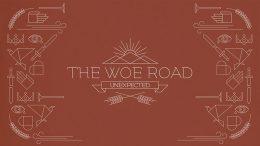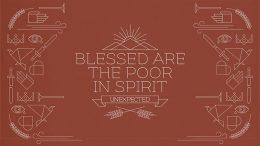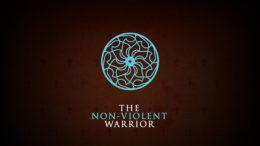
In Luke’s version of the Sermon on the Mount, he includes Jesus’ teaching on those who have embraced idols and are not blessed as they are on the path of woe. This sermon addresses what these “woes” mean and how we can fight against the woe road.

The Sermon on the Mount opens with a teaching on being poor in spirit, which refers to an attitude one has before God. It means not being self-reliant, but broken and dependent upon God for life.

In this third installment of our Long Story Short series we explore what the overall narrative of the Bible is as it relates to our Covenant with God, and the Kingdom ways we’re called to live here on earth. Today, we look at the story of the Flood through the lens of the cross finding that there’s a new lesson … Read More

In this fourth installment in our Take Heart series we explore what it means to be encouraged in our ability to build skills and competence in the areas God has entrusted to us. Discouragement can come externally from factors outside of our control that can be overwhelming, but it can also come from feelings and patterns of passiveness within that … Read More

Why did Jesus have to die? Why does the resurrection matter? What, if anything, actually hinges on believing Jesus was crucified and literally rose from the dead three days later? In this Easter message we explore these questions and other implications in believing and living out a resurrection centered faith.

In this sermon we continue our look in to scripture passages that often get dismissed because of their obscurity, seeming contradiction, or relative weirdness. This week Greg examined Exodus 4:19-28 which describes a strange encounter Moses and Zipporah had with God on their way from Midian to Egypt involving threat of death, circumcision, and the smearing of blood. This encounter, … Read More

In our last sermon in the series Turning the Tables, Greg takes a final look at New Testament passages often appealed to in order to justify violence. This week we examine the Parable of the ungrateful servant.

It is common to hear objections about the differences between the God of the Old Testament and Jesus in the New, but what about the views some hold that Jesus wasn’t actually non-violent? How do we handle the Scriptures that seem to imply He engaged in occasional violent acts? In this second message in our series, Turning the Tables, David Morrow shows how Jesus cursing a fig tree had nothing to do with violence, and everything to do with liberation from that which enslaves His people, both individually and collectively.

If we read the Old Testament assuming that it all is about the cross of Christ, then we can see how God stooped to the level of the cultural conditioning of the Old Testament authors to allow himself to be portrayed as violent. In addition, when we read carefully, we can actually see, within the passages of violence themselves, the nonviolent character of God breaking through.

In the second week of our Overwhelmed series Greg unpacks the topic of shame. We begin by looking at the origin of shame in Genesis 3; what shame is and where it comes from. Next we look at how God defeats shame on the cross and welcomes us to live shame-free lives through His unconditional love.
![]()
"Thank you all the way from Oregon. I deeply appreciate being shepherded by Pastor Greg and everyone else on the panels. You are a rare find in the church nowadays. Tackling tough questions with humility and a kingdom perspective. It has been life changing for me in such tumultuous times."
– Heather, from Oregon